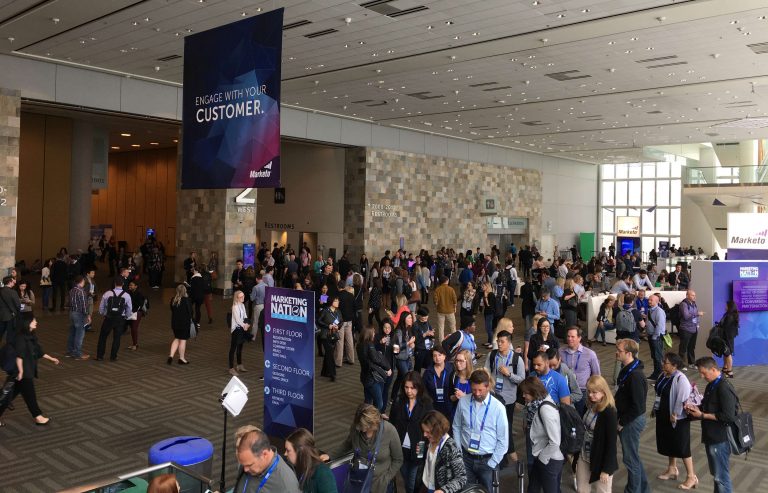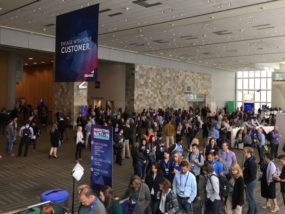Evan's Focus
Digital Marketing
Executive Profile
Evan Vuckovic, Marketing Manager/Social Media Manager
As a marketing and social media manager, I have found success through stringent attention to detail, innovative or unconventional problem solving, and fostering a positive teamwork environment. As a result, I’ve gained recognition of being a results-driven marketer who brings passion, enthusiasm, innovation and energy to every project I embrace. I bring these skills, a tireless work ethic, calmness under pressure and a quirky sense of humor to whatever lies ahead.
Communication
Positivity
Creativity
Integrity
Here's a list of
ADDITIONAL SKILLS
GET IN TOUCH
Learn More About Evan By
VIEWING HIS PORTFOLIO
-
Evan Vuckovic’s LinkedIn Profile

Evan Vuckovic
Community Manager at Kovel/Fuller
Greater Los Angeles AreaSummary
Every brand tells a story which engages, informs, and captivates their audience—while also delivering on desired business outcomes. And I have been the conduit between these brands and their consumers for 3+ years.
Currently, I am a social media community manager at Kovel Fuller, where I’ve worked with companies like Yokohama Tire expand their social clout.
Skills
Key Skills (Social Media)
Social Media Management
Product Advertising
Influencer Management
Social Strategy
Event Marketing
Paid Growth Campaigns
Social Measurement, Analytics, and Targeting
Community Management
Graphic DesignKey Skills (Digital Advertising)
Graphic Design
Creative Content Strategy
Search Engine Marketing
Customer Journey Mapping
Mobile Marketing
AI and Chat Development
Data Management
Video Marketing
Project Management
Performance Metrics and AnalyticsKey Skills (Website Management)
Web Design
User and Customer Experience Design
Content Management Systems
Hosting and Server Maintenance
HTML, CSS, PHP, and Javascript
Troubleshooting
Search Engine Optimization
Website Analytics
EcommerceKey Skills (Email Marketing)
Email Marketing Automation
List Building
Monthly Newsletters
Email Deliverability
CTA Optimization
A/B Testing
List Segmentation
Email Performance and AnalyticsKey Skills (Lead Generation)
Customer Relationship Management
Email Campaigns
Webinars
Customer Journey Mapping
Customer Retention
Lead Nurturing
MQL hand-offExperience
Community Manager, Kovel/Fuller
Feb 2018 – Present
Marketing Manager, Aragon Research
Jun 2015 – Jan 2018
Legal Assistant, Needham Kepner & Fish, LLP
Jun 2010 – Jun 2015
Personal Interests
When I’m not on the job, I can be found working on one of my cars, tinkering with online websites, chatting it up on social media, or running in the hills.
If you’d like to learn more about how my services can help your company, please reach out via email (contact@evanvuckovic.com).

Evan Vuckovic’s LinkedIn Profile
-
The Cloverfield Paradox (2018) Movie Review

The Cloverfield Paradox is produced by J.J. Abrams and was teased in a Super Bowl LII trailer. The movie was released on Netflix shortly after the Eagles defeated the Patriots, 41-33. If you were too busy driving home or wiped out from your party, this movie review outlines what you missed.
Plot
Expert scientists on the Cloverfield Space Station work on an experimental particle accelerator called The Shepard, in hopes to solve the Earth’s dimensioning energy resources.
While the planet is on the brink of war and life continues to hang by a thread, scientists fail at their initial attempts to power The Shepard. The mission is to capture energy produced from the particle accelerator, which in turn, could potentially deliver infinite energy for all.

From left to right, Monk, Tam, Kiel, Schmidt (center), Hamilton, and Mundy. NetflixThis isn’t the only problem posed by J.J. Abrams. As tensions increase amidst the Shepard’s failures, Russia begins to invade weaker nations by ground. As most know, military actions by ground demand copious amounts of oil. This leaves the audience with the impression that the world seems to be helpless in the pursuit of energy and that any moment could be its last.
What does the world look like without the power grid?
To put this in perspective, if we loose the internet we’re technologically set back to the early 1990s. If we loose electricity, welcome in the 1890s.

City without lights. UnsplashOn the Cloverfield Space Station, fights begin to break out among frustrated crew members. With less than a minute away from midnight on the ‘Doomsday Clock,’ the team musters up enough self-restraint to give The Shepard one last go. I won’t spoil the movie for anyone, but I will say that we’ve already conducted a similar experiment on Earth with the Particle Accelerator.
Considering the experiment takes place in space and not on Earth, viewers should expect the worst scenario to unfold with the crew attempting to reverse their damage. After all, space is still ‘unexplained’ when it comes to dark matter and alternate dimensions.
Final Thoughts
I can’t compare The Cloverfiled Paradox to Christopher Nolan’s Interstellar, but what I can do is draw similarities between the two in terms of interstellar space travel. Both films explore what space travel could be like if we adopt alternative energy sources, as well as the potential risks. I would not rewatch this film for fun and the only recommendations I will be making is for those interested in interstellar travel, but don’t be disappointed with the science of the film.
The Cloverfield Paradox Trailer. MovieAccessTrailers
About The Cloverfield Paradox
- Genere: Horror, Mystery, Sci-Fi
- TV Parental Guidelines (US): TV-MA
- Running time: 1 hour, 42 minutes
- Released: February 4, 2018
- Producer: J.J. Abrams
- Budget: $26 Million
- Movie Review Rating: 3/5
The Cloverfield Paradox Cast
- Gugu Mbatha-Raw (as Hamilton)
- David Oyelowo (as Kiel)
- Daniel Brühl (as Schmidt)
- John Ortiz (as Monk)
- Chris O’Dowd (as Mundy)
- Aksel Hennie (as Volkov)
- Ziyi Zhang (as Tam)
- Elizabeth Debicki (as Jensen)
- Roger Davies (as Michael)
- Clover Nee (as Molly)
- Jordan Rivera ( as 7yo Ayana)
- Michael Stokes III (as 7yo Isaac)
- Celeste Clark (as 4yo Ayana)
- Nathan Oliver (as 4yo Isaac)
- Donal Logue (as Mark Stambler)
- Suzanne Cryer (as News Anchor)
- Ken Olin (on Radio)
- Simon Pegg (on Radio)
- Greg Grunberg (as Voice)
The Cloverfield Paradox Crew
- Director: Julius Onah
- Writers: Oren Uziel, Doug Jung, Oren Uziel
- Producer: J.J. Abrams
- Executive Producer: Bryan Burk
- Executive Producer: Jon Cohen
- Executive Producer: Bob Dohrmann
- Executive Producer: Drew Goddard
- Executive Producer: Tommy Harper
- Executive Producer: Matt Reeves
- Associate Producer: Rick Carter
- Co-Producer: Cory Bennett Lewis
- Producer: Lindsey Weber

The Cloverfield Paradox (2018) Movie Review
-
How to Stop Micromanaging and Start Leading

By Evan Vuckovic
(Blog) — The goal of a manager is to remove roadblocks for their team and to focus on the outcomes more than the process. The problem is that many managers today think they are leading, but in reality are actually closer to being labeled as a micromanager manager or helicopter manager. The classic example of a newly promoted manger who is an over-achiever is where most micromangement begins. These new managers have high standards to live up to and expect the same from their employees’, so they have a tendency to hover. Once this becomes a habit, then micromanagers tend to stay in their comfort zone while not realizing the impact of their management style has on their team.
On the other hand, leaders find success by letting go a little bit more which is why their management style is more effective. But what’s the right balance of too much or too little supervision? This blog will help you find the right balance and outline how to stop micromanaging and start leading.
Micromanagers
The micromanagement style closely monitors what, when, and how an employee tackles a defined project. By definition, a micromanager is a supervisor that manages employees’ in an excessive manner. For example, the micromanger will tell an employee what needs to be accomplished and by when, then will closely watch how the employee takes action and will provide constant feedback of the employee’s progress and processes.
Under most circumstances, micromanagers usually fall into one of the three categories: 1) they aren’t aware of their tendencies to micromanage, 2) they are afraid of failure, or 3) lack trust. Either the outcome, micromangers more often than not have the companies best interest top of mind and don’t understand the impact of micromanagement at the employee level. Not only does micromanagement increase employee stress, but it also takes away from employee independence. A lack of independent thought destroys original and creative thinking in terms of the project itself and how it’s to be accomplished. While successful leaders focus on the what, they also tend to let their team decide on the how.
Leaders
Leadership doesn’t come easy and there is a balance to becoming an effective leader. While there are a lot of different management styles, effective managers know how to balance the what (project expectations & check-ins) and leave the how up to the team. Here are 3 ways to become an effective leader:
1. Set expectations from the start — the more you define a project from the beginning, the less you will feel the need to step-in and micromanage. Before assigning the task and setting your team or employee on their way, make sure you ask questions to verify they clearly understand your expectations
2. Balance how you check in — be aware of how long you wait before checking-in on the team or an employee’s process. Try to resist the urge to check-in until about 65% of the way through the previously defined timeline. This brings benefits to both you and the team since it provides you time to focus on your work, while also communicating to your team (or employee) that you trust them.
3. Pump the brakes — successful leaders not only check-in fewer times over the course of a project, but they also check-in in different ways each time they do. Sometimes an email or message will be sufficient, while other times stopping by in person will be more effective. When checking-in, make sure you’re not strictly evaluative, but to also offer help. Leaders will ask if things are good and on track. They will also ask if there’s anything they can help with to ensure that the project is a success. Remember, it’s the managers job to remove project roadblocks and it’s the job of the team (or employee) to communicate what’s in the way.
Summary
When managers let go a little more than they are comfortable with, they are actually leading when they have set clear expectations, along with the occasional check-in. By finding the right balance micromanagers can become leaders. If you’ve been labeled as a micromanager, try to let go some and you just might be surprised by the results.

How to Stop Micromanaging and Start Leading
-
Meltdown and Spectre Security Threats Explained

By Evan Vuckovic
(Blog) — Meltdown and Spectre are names given to three major techniques used by cybercriminals to exploit information from nearly all computers, mobile devices, and even from the cloud. If you were counting, Spectre is a blanket term for two different techniques and Meltdown for the other.
Wondering if you are vulnerable? If so, this blog explains what happened, if you’re protected, and what you can do to keep your information safe.
The Spectre and Meltdown security threats are in all Intel CPUs (Central Processing Units) from 1995-today, and these threats exploit a process called Speculative Execution.
While Apple and Microsoft have both come out with updates to address the exploitation techniques in January, 2018, there is still a lot of confusion on the internet.
What is Speculative Execution?
Speculative Execution is a procedure used by CPUs to optimize computing performance by carrying out multiple tasks at once. With speculative execution, the CPU can then better serve users by predicting the path that has the highest probability of being taken, and then ‘prefetch’ that information. When a CPU predicts the incorrect path, then the prefetched results are pushed to an unsecured portion of its cache memory. This creates a pathway or a ‘backdoor’ for bad actors to enter through and access prefetched information.
The History of Speculative Execution
Originally, computers were self-contained systems which used speculative execution to pre-process calculations. These calculations were pushed to the same section of a modern computer’s cache memory, but in the case of a self-contained computer, there wasn’t a way to access the unused data. Since this was not seen as a risk, then there wasn’t a need to secure the information.
The Speculative Execution Vulnerability
Over the years, computers and phones became more connected with the rise of the internet and cloud computing. The rise of cloud computing led to abstract internet services including software, storage, servers, and databases—to share information through the (cloud) network. This allows us to share various system resources with other systems and applications. The problem is when machines run speculative execution and unprotected data ends up in shared memory.
What is Meltdown?
Meltdown is security threat that exploits “rogue data cache load” which allows potential bad actors to access kernel memory. The Meltdown exploitation is formally known as CVE-2017-5754. According to Apple, the Meltdown technique to read kernel memory “has the most potential to be exploited.”
What is Spectre?
Spectre is a security threat for two different points of exploitation know as “bounds check bypass” and “branch target injection.” These two vulnerabilities are formally named CVE-2017-5753 and CVE-2017-5715, and are collectively known as Spectre. This process takes advantage of the lag in time a busy CPU takes to verify memory access. Same as Meltdown, Spectre is too vulnerable to kernel memory leaks. Although Spectre is a less likely threat, the security risk comes from running JavaScript on a web browser.
Who’s Affected by Meltdown and Spectre?
Affected Chips: AMD, ARM, and Intel
Affected OS: Android, Chrome, iOS, and macOS
For Apple and Microsoft Users
Some have speculated that security patches will slowdown both Microsoft and Apple devices. Although this is a likely scenario, we shouldn’t expect any significant decreases in speed from any of their devices. In December, 2017, Apple tested the speed of their updates an found “no measurable reduction in the performance of macOS and iOS.”
Apple Meltdown and Spectre Patches
Apple has released security (patch) updates for macOS High Sierra and iOS. This will defend against Spectre. According to Apple “These issues apply to all modern processors and affect nearly all computing devices and operating systems.”
- The Meltdown patch came in the following software updates: iOS 11.2, macOS 10.13.2, and tvOS 11.2
- The Spectre patch came later in software updates: iOS 11.2.2, the macOS High Sierra 10.13.2 Supplemental Update, and Safari 11.0.2 for macOS Sierra and OS X El Capitan
Update your Apple OS and iOS here: https://support.apple.com/en-us/HT201222
Microsoft Meltdown and Spectre Patches
Microsoft has currently issued 41 patches for their 45 different editions of Windows. Throughout Microsoft support forums, there have been issues with AMD PC owners rebooting, but these systems are about 10+ years in age. I wouldn’t worry about it too much, but it is something to make note of for both Microsoft and Apple as I have experienced some lags here and there.
Update your Microsoft software here: https://support.microsoft.com/en-us/help/4073757/protect-your-windows-devices-against-spectre-meltdown
Bottom Line
The world of cybersecurity is currently playing catch-up and we should expect to see further exploitations revealed to us in the future. Both Meltdown and Spectre exploitation techniques put virtually all machines at risk, but security patches from Apple and Microsoft are available. As updates continue to be released, we should also expect our devices and machines to be slow from time-to-time, and act in unusual ways as new updates roll in.

Meltdown and Spectre Security Threats Explained
-
[PODCAST] What is the Current State of Sales Learning?

What is the Current State of Sales Learning?
October 31, 2017
(Aragon Live Podcast) – In this episode, Jim Lundy, CEO and Lead Analyst at Aragon Research, and Mark Magnacca, President and Co-Founder of Allego, discuss the current state of sales learning—and why sales leaders should consider re-thinking their approach to how they train and provide feedback to their sales teams.
What is the Current State of Sales Learning? – Aragon Live
Originally posted online at aragonresearch.com.

[PODCAST] What is the Current State of Sales Learning?
-
[BLOG] 5 Takeaways From Marketo’s Marketing Nation Summit 2017

5 Takeaways From Marketo’s Marketing Nation Summit 2017
April 26, 2017
By Evan Vuckovic
(Aragon Research) – Aragon Research marketing attended Marketo’s Marketing Nation Summit 2017 and in lieu of coffee, the audience was presented with an energizing dance troupe of performers. Steve Lucas, CEO of Marketo, followed and welcomed the crowd of over 6,500 fellow marketers by presenting the theme for Marketo’s summit, engagement.
In addition to marketing engagement, topics such as marketing automation, the engagement economy, artificial intelligence in marketing, and a new Canadian law called CASL were some of the major talking points at the breakout sessions. This blog summarizes the five key takeaways from the Marketo Marketing Nation Summit.

#MKTGnation
1. From Automation to Engagement
A key theme that still pervades Digital Marketing and its supporting technologies is marketing automation. In 2017, marketing software has added an additional layer to marketing automation by including marketing engagement capabilities, and this was a much-talked-about topic at this year’s MKTGnation.
Most sales and marketing leaders are aware of the ABC (Always Be Closing) acronym taught during sales training. The Social Selling session presented by panelist Jill Rowley, Social Selling Evangelist and Startup Advisor, suggested ABC should stand for “Always Be Connecting.”
While marketing automation technologies have become increasingly streamlined and sophisticated, we need to remember that today’s customers get inundated with content, and that’s why smart engagement is key. Sales and marketing will have to continue to work together to find more effective methods to engage.
2. Understanding the Engagement Economy
Ariel Kelman, VP Worldwide Marketing at Amazon Web Services (AWS), introduced the secret sauce for AWS when it comes to encouraging customer-based obsession. The idea of improving the customer experience has always been present, but any organization can tout how great their clients say they are. But trust is not built off of what the brand says; it’s formed from word of mouth communication from one customer to another.
Another spice in the AWS recipe was not what, but, how much throughput can be added to the customer experience, which includes marketing tactics and testing to continually improve the experience.
Kelman informed the audience that AWS found its customer journey was a better one when the potential buyer was engaged with at every step of the buyer journey, and was unofficially coined “the customer engagement approach.” Reportedly, Amazon Web Services sends about 10M marketing emails via the Marketo platform and continues to improve its lists by considering the engagement economy and approaching potential buyers and clients with relevant email content at the right time. A customer engagement approach is also centralized on giving customers the opportunity to become evangelists for your brand to build trust with your potential buyers.
3. Leveraging Artificial Intelligence in Marketing
Why does Artificial Intelligence (AI) matter? AI sorts through unstructured data much faster than any human can and also presents data in digestible ways for sales and marketing professionals. What both teams can take away from AI is that they now have the ability to test and to implement new marketing campaigns from the data brought to them by AI algorithms.
Although still in its beginning phases, “adaptive or intuitive engagement” was mentioned as a key feature for AI in marketing, and is expected to be coming to Marketo’s Engagement Platform. Adaptive/intuitive engagement leverages predictive algorithms to test channels and content among other parameters, but more information and use cases will be needed to assess its potential.
If you’d like to understand more about the business impact of modern AI/cognitive computing, you can attend our upcoming Aragon Research webinar: Modern AI and Cognitive Computing: Boundaries and Opportunities.
4. CASL and Marketing to Canadians
As anyone with an email account is aware of, there is an overwhelming amount of marketing messages and emails sent to us, and Canada’s Anti-Spam Law (CASL) aims to minimize the irrelevant electronic messages. CASL is a new Canadian anti-spam law that applies to any Commercial Electronic Message (CEM) sent from or to Canadian machines. This regulation applies to any computer or mobile device to enable users the choice to opt-in to promotional offers in form of instant messages and emails. The law does not include fax machines or messages.
CASL brings to point two types of consent that marketers must be aware of, and they are implied consent and express consent. Implied consent would be a recipient that has purchased a product or service with your organization in the last 24 months. Express consent is obtained by presenting recipients a clear and concise description for the purpose of obtaining consent, a description of the message(s) they will receive, their contact information, and a method to unsubscribe.
What marketers must be aware of when sending to and from Canadian computers and devices:
- From July 1, 2014 – July 1, 2017, messages sent to recipients are legal if they have implied consent.
- Starting on July 1, 2017, messages sent to recipients are illegal if they only have implied consent, but, messages sent to recipients are legal if they have expressed consent.
- Companies not following the CASL law are subject to fines up to $10M.
5. The Best Marketers Are Constant Students
During her fireside chat, Queen Latifah offered the audience at Marketo’s Marketing Nation Summit 2017 some practical advice that is often overlooked in marketing.

Queen Latifah’s fireside chat.
The first key piece of advice was to “be a constant student, you’ll never be too large for you britches.” This is relevant for Marketers as it’s an ever-evolving profession and if you continue to learn you’ll be surprised with how far you can go. The other tip from Queen Latifah was that “you’ve got to stand for something or you’ll fall for nothing.” My take on her advice is that there are many marketing trends to follow, but marketers only have so many resources and they will have to take a stand on the ones that will make the biggest impact for them.
Bottom Line
All in all, it was a great Marketing Nation Summit. Lots of ground was covered and marketers left more engaged with ideas to take their campaigns to the next level from automation and AI to the engagement economy.
Originally posted online at aragonresearch.com.

[BLOG] 5 Takeaways From Marketo’s Marketing Nation Summit 2017
-
[WEBINAR] Winning with Modern Learning: 3 Reasons Why You Can’t Wait

Winning with Modern Learning: 3 Reasons Why You Can’t Wait
November 3, 2017
Summary
The proliferation of modern technologies has raised the bar for how and when individuals acquire knowledge. New workplace trends such as microlearning and just-in-time learning empower individuals to learn anywhere at anytime, while enhancing the quality of knowledge delivered through a more personalized experience.
To remain competitive in the market for top talent and to keep employees engaged, businesses need to support Modern Learning.
Join Jim Lundy, CEO and Lead Analyst of Aragon Research, on November 3rd 10 am PT to hear 3 reasons enterprises should adopt Modern Learning Platforms.
In this on-demand webinar, you will learn:
- Key trends in Modern Learning
- 3 reasons why you can’t wait to get started with Modern Learning Platforms
- How enterprises can deliver a modern learning experience
- Aragon’s coverage areas, analysts, and services
Originally posted online at aragonresearch.com.

[WEBINAR] Winning with Modern Learning: 3 Reasons Why You Can’t Wait
-
[CONTENT MARKETING] Getting Started with Artificial Intelligence


[CONTENT MARKETING] Getting Started with Artificial Intelligence






